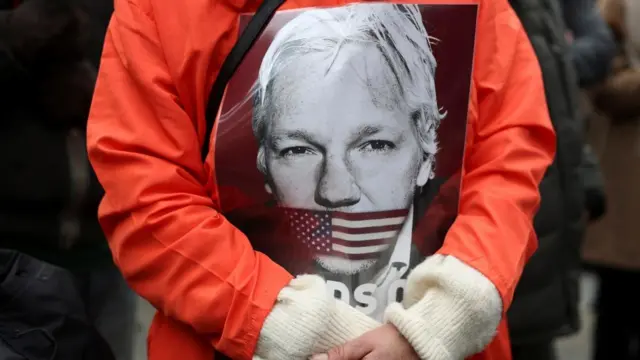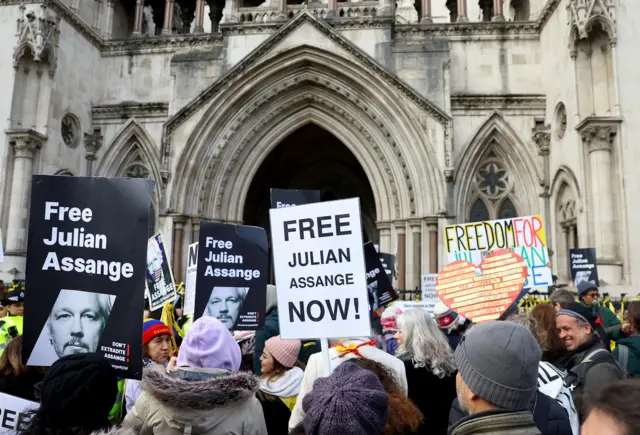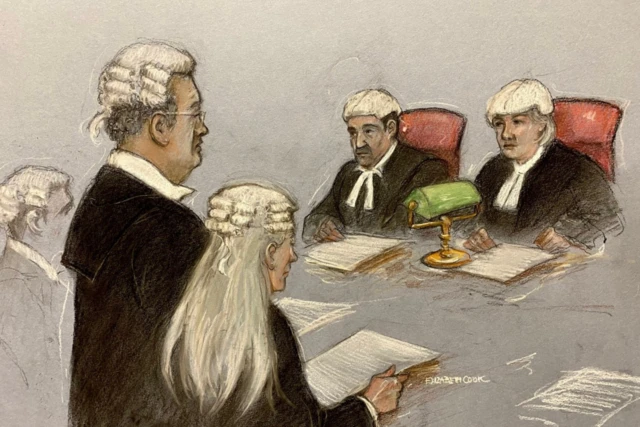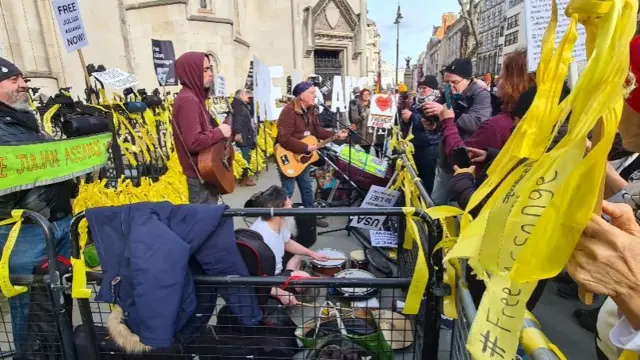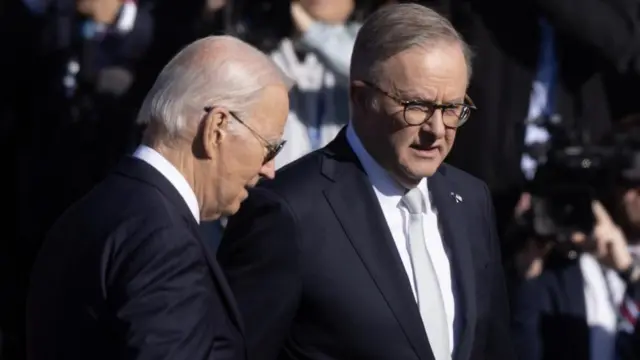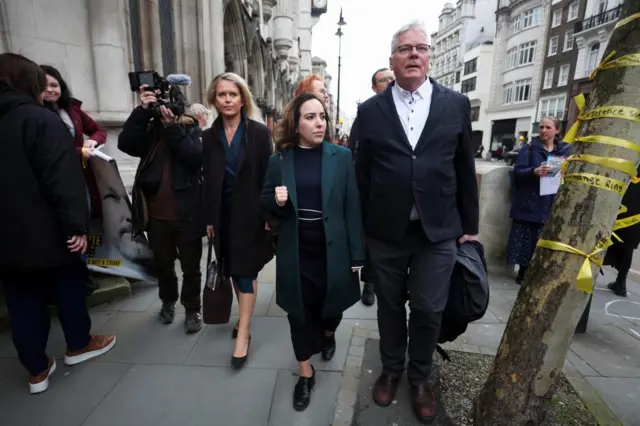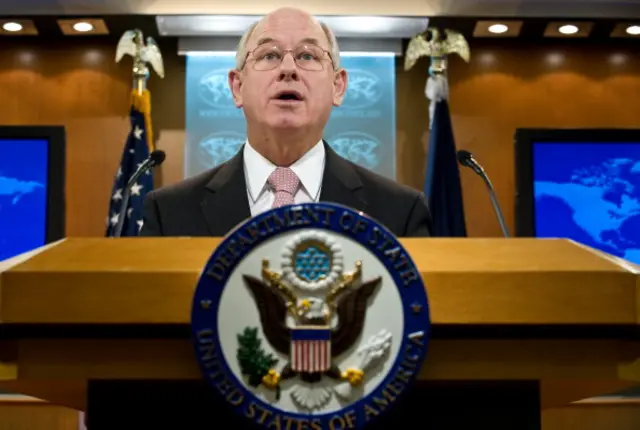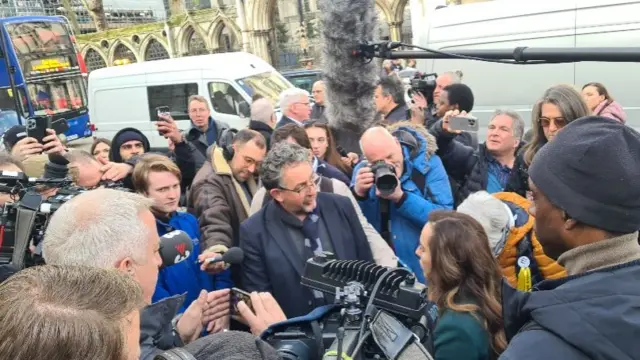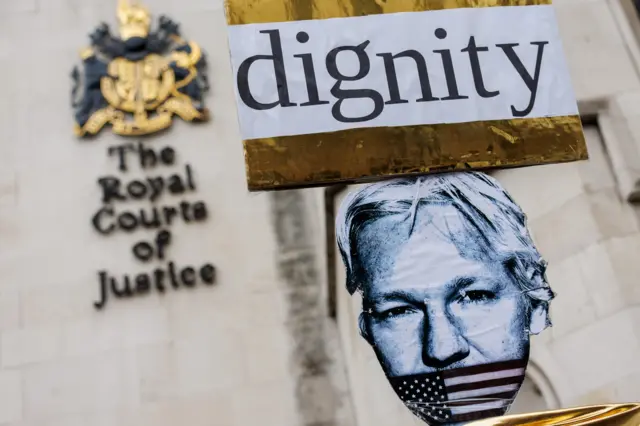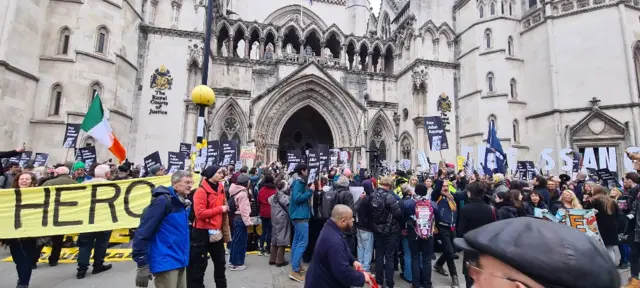Thanks for following alongpublished at 17:49 GMT 20 February 2024
That's a wrap on the first day of what could be the final attempt by Julian Assange to appeal his extradition.
The Wikileaks co-founder was not present at the High Court today because he was unwell, and it's unclear whether he'll attend tomorrow when the hearing continues for its second and last day.
Thank you for following along with us as we brought you the latest from both inside and outside the courtroom.
This page has been edited by Andrew Humphrey, Alex Kleiderman and myself, Johanna Chisholm. Our writers have been Jeremy Culley, Jacqueline Howard, Thomas Mackintosh, Malu Cursino, Esme Stallard and Marita Moloney.
You can read the full news story for the day from our correspondent Dominic Casciani here.


